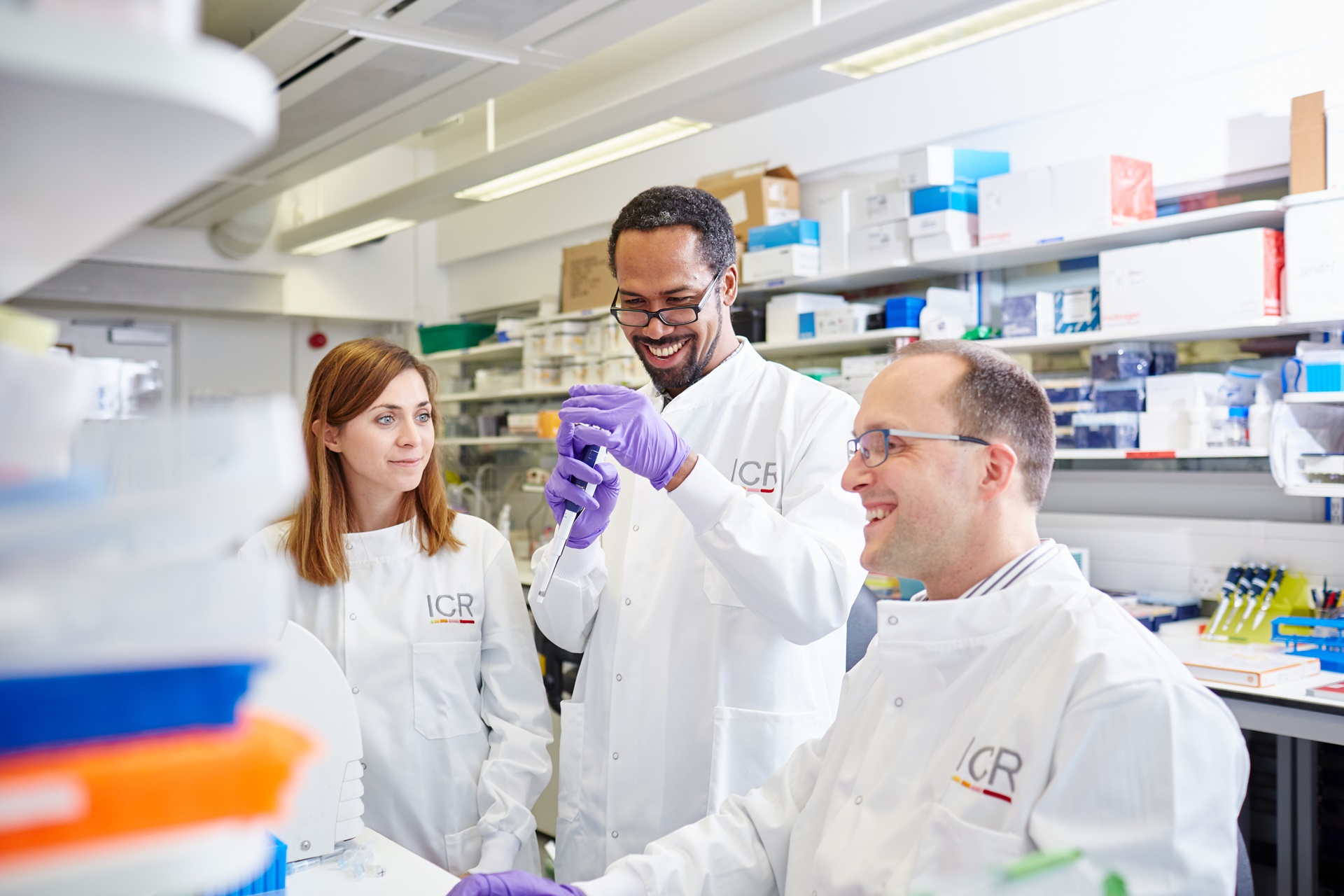
Opportunity: Discovering and developing small molecule inhibitors of ERAP1
Dr Esther Arwert
ICR lead scientists/inventors:
Dr Esther Arwert
Opportunity at a glance
The Institute of Cancer Research, London, and Cancer Research Horizons are seeking a collaborative partner to accelerate the development of an ERAP1 programme in the Centre for Cancer Drug Discovery at The Institute of Cancer Research (ICR).
The research team has discovered a series of novel compounds which are now at the lead optimisation stage, having shown potent activity against ERAP1 in preclinical studies.
Targeting ERAP1 has particular potential to enhance the effectiveness of checkpoint inhibitors or radiotherapy, in patients who do not currently respond to those treatments.
More about discovering and developing small molecule inhibitors of ERAP1
The development of immunotherapies has created a paradigm shift in the treatment of some cancers. Monoclonal antibodies that modulate the activity of T-cells through pathways such as CTLA-4, PD-1 and PD-L1 have become a standard treatment and have made an enormous impact in several cancer types. However, patients do not respond to these drugs in a wide range of settings.
Scientists are now searching for new therapeutic agents that could enhance the effectiveness of immunotherapies. One promising avenue of investigation is the discovery and development of small molecule cancer drugs that could increase the availability of immunogenic neoantigens on the surface of tumour cells – increasing the engagement of T-cells with tumours and making cancer cells ‘more visible’ to the immune system.
ERAP1 is an aminopeptidase that plays an important role in antigen generation, trimming peptides for presentation to Major Histocompatibility Complex (MHC) proteins and subsequent immune response to pathogens.
Scientists in the ICR’s Centre for Cancer Drug Discovery believe that an ERAP1 inhibitor could modulate tumour antigen presentation on the surface of tumour cells to elicit an increased T-cell response, and tumour regression. In addition, ERAP1 inhibition can change the configuration of antigens presented to MHC protein HLA-E, and in turn result in the activation of natural killer cells.
ICR scientists at the Centre for Cancer Drug Discovery have developed a series of ERAP1 inhibitors which are at the early Lead Optimisation stage. The most potent compounds have pIC50 > 8 against both human and mouse ERAP1 (unpublished data).
Key points
- A lead-stage series of small molecule inhibitors of human ERAP1*
- Potent, orally-available inhibition of mouse and human ERAP1*
- Highly selective (>100-fold) for ERAP1 over other M1 aminopeptidases*
- Good oral absorption and microsomal stability*
- Positioned as a combination therapy in diverse cancers, with particular focus on colorectal cancer*
- Compounds modulate tumour antigen expression*
- Further studies are planned, including combination analyses with existing modalities and efficacy studies using in vivo and in vitro cancer models
*unpublished data.
Contact us
Dr Jonathan Beech
Business Development Manager
The Institute of Cancer Research